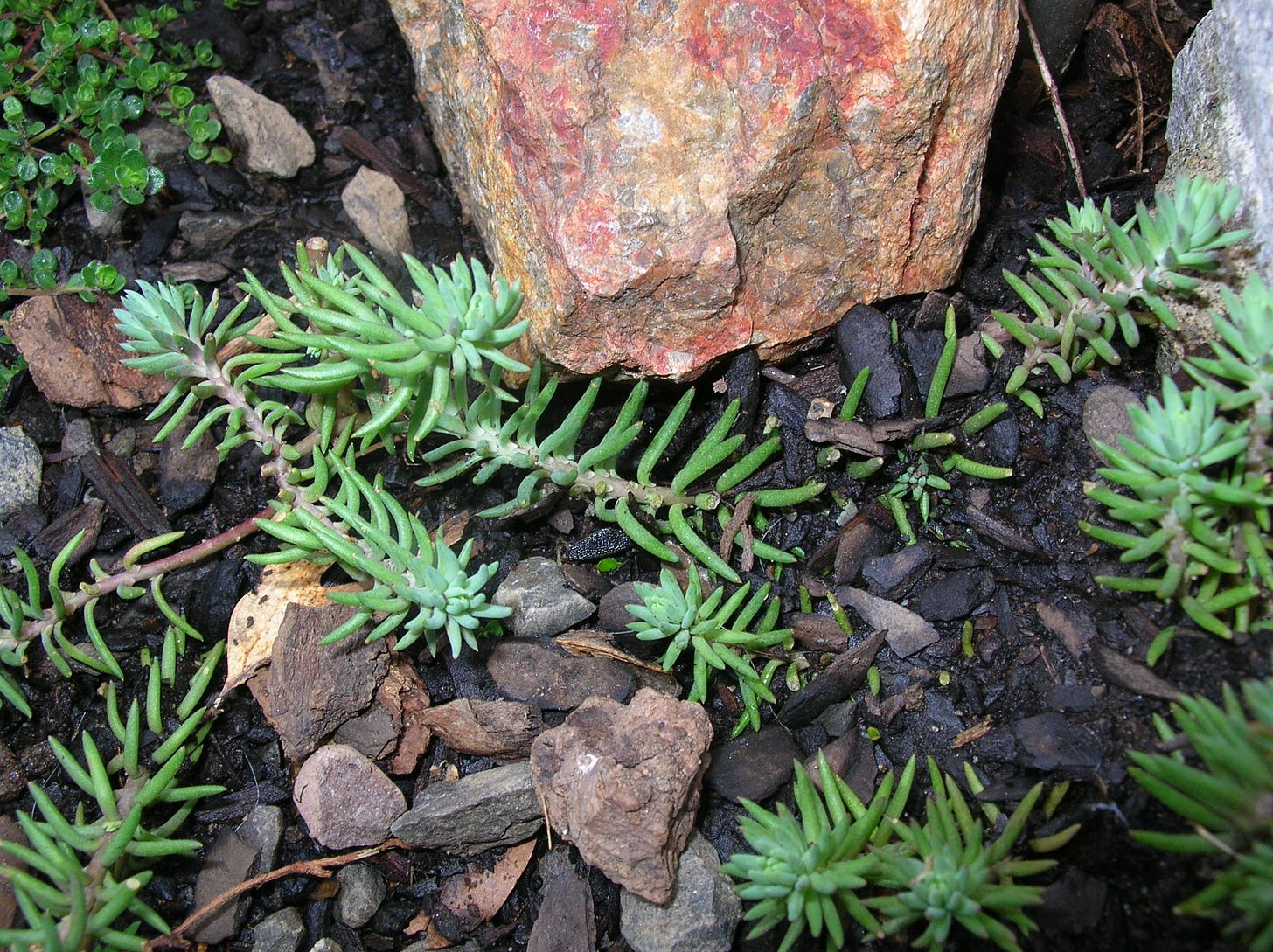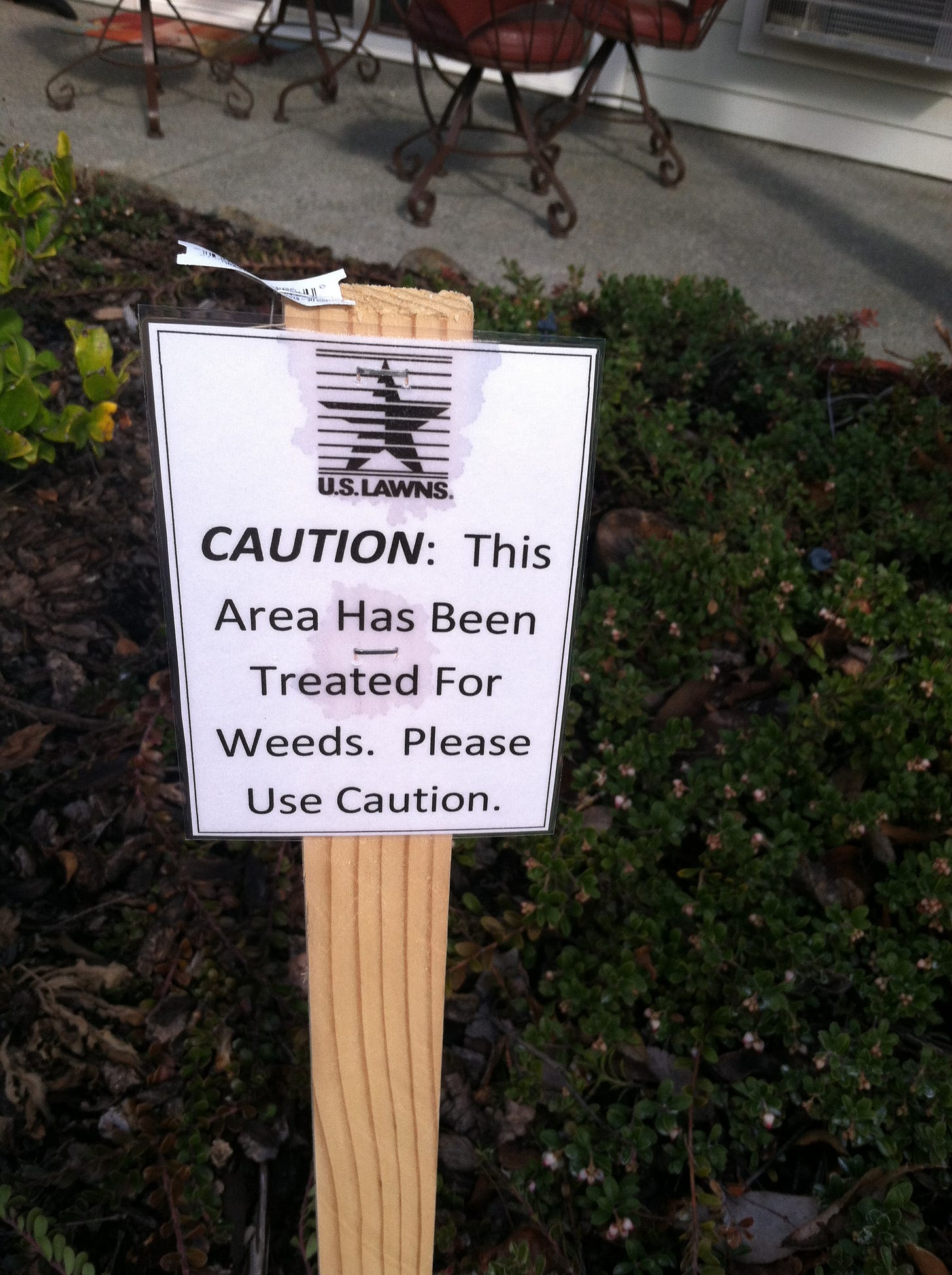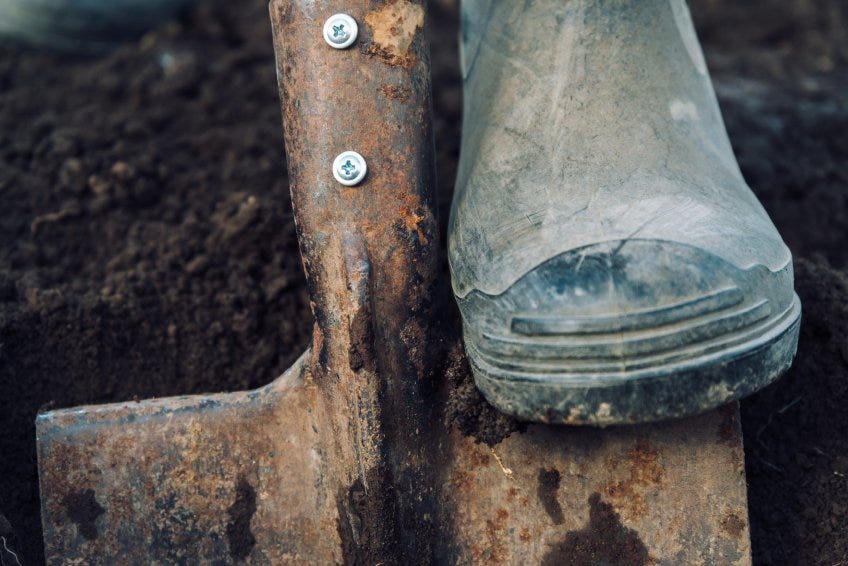The Difference Between Organic Gardening and Conventional Methods
I invite you to consider this difference as you plan and make choices for your garden and land.
The difference between organic gardening and conventional methods is an important distinction to make to keep things in perspective when it comes to how you care for your garden and land. This is a cornerstone of bio-diversity and maintaining a living system on your property.
Here are some fundamentals that you can apply that will help you make better choices and understand this difference.
Organic Gardening
Your soil has many living organisms in the form of probiotics, mycorrhizae, bacteria, fungi, earthworms, and insects. There is a whole world going on underneath your feet every moment of every day. The earth is literally alive and is what sustains your garden and land from the ground up. When you use organic methods you build your soil and the nutrients, so that it can support the health and growth of this living system. Your soil cannot live at its best potential to support thrival of your plants without these organisms being supported and encouraged.
The organic way is equivalent to doing consistent preventative maintenance through nutrition and the lifestyle you live in the domain of health. When you take care of your body it will yield more delicious fruits in the form of energy, clarity, the endurance to contribute your value more consistently, and to live the life you want to live.
Conventional Methods
On the other hand... conventional methods of garden and land maintenance go against the soil. This is the same as how drugs make symptoms go away while the cause festers. The cause is always in the soil. Non-organic pesticides, herbicides, fungicides and chemical fertilizers disrupt the balance in the soil, and kill the beneficial organisms your soil needs to keep supporting life and recycling what is dead.
Conventional methods offers you a buy now / pay later paradigm. This method of gardening is like using a credit card to buy something with money you don't have. You get quick gratification, have to pay interest later, and go further into debt. Farming this way makes things look great on the surface, while the source in your soil that creates healthy plants that can grow strong and survive on their own goes untouched.
Nature weeds out the weak and wants the strong to survive. Using non-organic methods only helps the weak survive just like bailing out banks that don't provide value to the clients it serves. These types of methods should not be bolstered up again. They should be allowed to fail so that they can learn how to create value and deeply nourishing services and fruits for the people they serve. This is a win-win relationship and the kind of relationship you should be fostering with your garden and land if you want it to give back to you in the bounty it provides.
Non-organic chemicals are synthetic, temporary, and unstable. The use of synthetic chemicals causes imbalances in nature. When nature is out of balance it causes stress. This is when diseases and pests will strike. The problems with non-organic chemicals are well documented. The last 100 years of this has caused the depletion of our topsoil, along with the demise of many species of life. They have also caused the mutation of pests into greater pests, and the weakening of our food for nutrition. The signs are right in front of you everyday when you look around. This day and age is overt in illuminating this. Organic is no longer a fad. Organic is the way of the future for our land - We the People!
Organic Solutions
Here are some fundamental things you can do to build the soil in your garden and land:
Weed by hand to cut out the use of pesticides to kill weeds.
Amend you garden 2x's per year with a soil building compost of your choice. I prefer the Supreme Harvest by Gardner & Bloome for the garden and the Soil Building Compost by Gardener & Bloome for the landscape. For acid loving plants use an acid compost blend. Gardener & Bloome also has an excellent blend for this.
Work and aerate your soil by tilling and/or digging it seasonally to mix in your compost / fertilizers . I recommend to work and turn your soil to keep energy moving in the earth. This also helps aerate the soil and increase drainage.
For bare areas you can top dressing your soils, but wherever you can, working it into the soil will help for the reasons stated above.
Use natural and non-toxic pest controls, along with organic fertilizers and rock dust to amend with.
These practices will help you cut out the use of non-organic and synthetic chemicals. When done consistently, organic methods will help to balance the bio-diversity on your land and help to keep down overt pest invasions.
Straight Up & Free with James D is a reader supported publication.
If you found this valuable and educational, and appreciate the craftsmanship and care I bring in providing this content, please consider upgrading your subscription to support my work. You can also give a gift subscription, or make a one time donation.
Thank you!







